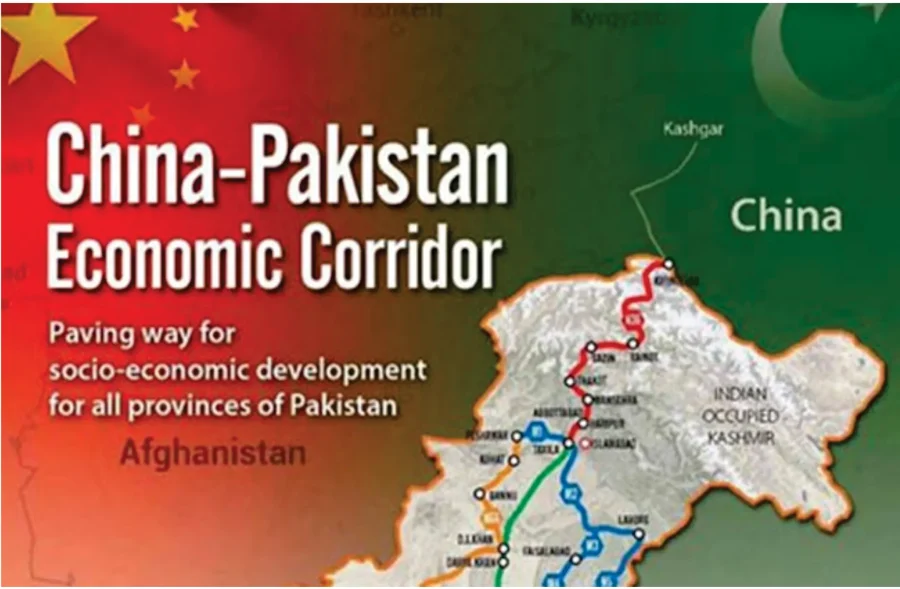CPEC, a monumental $62 billion investment by China in Pakistan, has not only reshaped Pakistan’s economic landscape but has also become a pivotal factor in the country’s politics. Since its inception in 2013, CPEC has emerged as a cornerstone of Pakistan’s economic development and bilateral relations with China. The project has completed its initial phase of infrastructure development and is now in a critical stage of industrial expansion, agricultural growth, energy generation and the establishment of economic zones. This phase of CPEC presents an opportunity for political parties in Pakistan to align their electoral strategies with the project’s outcomes. In contemporary politics, voters are increasingly swayed by prospective promises rather than past achievements. Hence, political parties need to focus on promoting their future economic and wellbeing programs instead of relying solely on past performance. CPEC, being a harbinger of sustainable development, offers an ideal platform for political parties to mobilize voters with forward-looking agendas.
A key aspect of CPEC’s significance lies in the civilian supremacy it grants over Pakistan’s economic infrastructure. As elections approach, it becomes imperative for political campaigns to realign themselves with narratives that emphasize the importance of civilian control over economic projects. This stance may seem at odds with the market-driven neoliberal expansion which often necessitates force and domination to thrive in a resistance-free business environment. CPEC has emerged as a pivotal project that promises economic prosperity and development for Pakistan. The unfolding of Pakistan’s electoral landscape in recent years has raised questions about who sets the electoral tone and the role of neoliberal party politics supported by corporations in safeguarding business interests while potentially threatening sustainability. CPEC, as a massive infrastructure and trade project, is not immune to the influence of neoliberalism. While it promises economic growth and development, concerns have arisen about the extent to which corporate interests drive the project’s priorities and implementation. For instance, some argue that CPEC has led to increased foreign debt and fiscal obligations, potentially compromising Pakistan’s long-term economic sustainability. The focus on infrastructure development and energy projects, primarily funded by Chinese loans, has raised questions about the terms and conditions of these agreements, with critics suggesting that they may disproportionately favour Chinese corporations and undermine Pakistan’s sovereignty.
Neoliberal developmentalism and corporate interests have significant implications for Pakistan’s electoral landscape. While political parties may claim to represent the interests of the common people, the reality often tells a different story. Electoral choices may be influenced, if not determined, by the financial support provided by corporations and other interest groups. This has led to dialectics in electoral politics, where parties may espouse populist rhetoric but ultimately work to maintain the status quo and protect the hegemonic control of market forces. The electorate may feel compelled to vote for parties that have received corporate backing, even if their policies prioritize the interests of big businesses over those of ordinary citizens. In Pakistan, neoliberalism’s influence extends beyond economic policy, infiltrating the political sphere. This influence is often exerted through corporate interests that seek to protect and advance their business objectives. Neoliberalism emphasizes limited government intervention in the economy, free-market capitalism and individual liberties. Whether a specific party or political ideology in Pakistan aligns with neoliberalism would depend on their platform and policy positions.
Electoral politics is influenced by a wide range of ideologies and interests, not just neoliberalism. Voters have different motivations and preferences, and they may choose to support parties and candidates for various reasons, including economic concerns, social issues and their vision for the country’s future. While there are critiques of electoral politics in many countries, it’s essential to recognize that elections provide an opportunity for citizens to express their preferences and hold their leaders accountable. The idea of “free will” in voting decisions can be influenced by various factors, including the information available to voters, their values and their perceptions of the candidates and parties. In democratic societies, there is often a lively debate about the influence of money in politics and the role of corporations and interest groups. Efforts to address these concerns may include campaign finance reform, transparency measures and efforts to promote a diversity of voices in the political process. Corporate interests and political parties have formed symbiotic relationships where corporations financially support political campaigns in exchange for favourable policies once a party comes to power. This has the potential to distort the democratic process by prioritizing corporate interests over the welfare of the common citizen. The focus on development has been increasingly politicized, leading to issues of corruption and misgovernance.
Pakistan faces challenges, including a 75% increase in power tariffs, leading to protests and civil disobedience. The elite continue to receive subsidies, exacerbating inequality. The UN Development Programme estimates that a significant portion of Pakistan’s economy is unfairly exploited by the elite, leaving marginalized communities in dire straits. To address these challenges and create an inclusive political system, Pakistan needs substantial political will. Incremental policy changes can help make it difficult for politicians to cater exclusively to narrow voter groups. Electoral design, particularly electoral rules, can incentivize politicians to appeal to broader constituencies. The United States has expressed concern over potential election violence in Pakistan and reaffirmed its support for free and fair elections. China, with its significant investment in CPEC, is keen on ensuring the project’s continuity, regardless of the election outcome. In this context, it is imperative for Pakistan’s democracy to strike a balance between economic development and the protection of the common citizen’s interests. Efforts to increase transparency, accountability and public participation in decision-making related to CPEC and other neoliberal policies are essential to ensure that electoral choices genuinely reflect the will of the people, rather than being unduly influenced by dominant market forces. The future of Pakistan’s democracy and sustainable development hinges on the ability to navigate these complex dynamics effectively.










